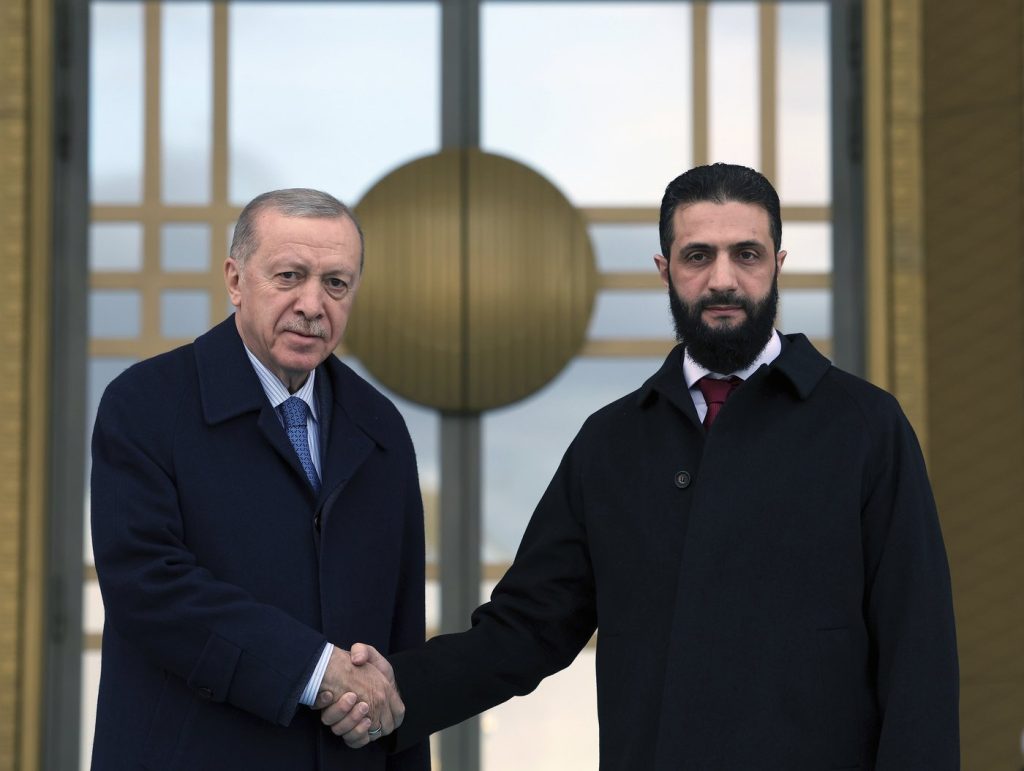ANKARA (AP) – Syria's interim president, Ahmad al-Sharaa, visited the Turkish capital on Tuesday, February 4, 2025, for discussions centered on Syria's economic recovery and the presence of Kurdish-led forces in northern Syria, which Turkey regards as a significant security threat. Al-Sharaa's appointment as interim president was confirmed just a week prior to this visit, marking his second international trip following his journey to Saudi Arabia.
The meeting with Turkish President Recep Tayyip Erdogan was characterized by a low-key welcome ceremony compared to the formal receptions typically given to other heads of state, who are usually honored with military bands and ceremonial troops. Al-Sharaa, a former rebel leader who played a pivotal role in toppling President Bashar Assad, was greeted by Erdogan and a small honor guard at the entrance to the expansive presidential palace complex.
During the civil war that has ravaged Syria for the past 13 years, Turkey emerged as a staunch supporter of opposition groups against Assad. Erdogan's administration views the economic stabilization of Syria and its security landscape as vital areas of discussion during their talks. A significant concern for Turkey is the Kurdish militias in Syria, which are primarily composed of the Syrian Democratic Forces (SDF), an ally of the United States. Ankara perceives these militias as extensions of the outlawed Kurdistan Workers' Party (PKK) and continues to advocate for their disbandment.
Currently, Turkish-backed fighters are engaged in conflict with the SDF to push these Kurdish forces further from Turkey's borders. Mazloum Abdi, the commander of the SDF, revealed in an Associated Press interview on Sunday that he recently met with al-Sharaa in Damascus. They are reportedly negotiating future arrangements regarding the fate of Syria and the Kurdish population, assisted by mediators.
Turkey has been a major host to Syrian refugees since the onset of the civil war in 2011, with numbers peaking at over 3.8 million in 2022. This humanitarian issue remains a critical factor as Turkey navigates its foreign policy concerning Syria and its regional allies.
As the discussions unfold, it remains clear that the Turkish government seeks not only to strengthen its influence in the region but also to address the ongoing security concerns that emanate from the presence of Kurdish forces along its borders. The outcome of these talks will be pivotal for the future stability of Syria, its economic recovery, and the safety of Turkey's borders against perceived threats.










